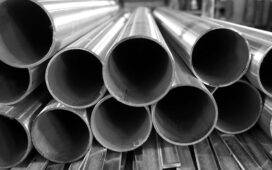The current state of the world where we are all more or less homebound has allowed a range of hobbies to flourish. With that in mind a similar thing has happened with certain industries as we witness a slow, but steady shift in demand for services, and new materials.
Whether that affects your business is a different topic, but the question is: does your business have something to do with solar energy, aerospace, automobile industry, or maybe you need specific parts for a hobby like modeling?
Whatever the case may be, I found an ideal partner for this conversation with Wunder-Mold who taught me how to best utilize technical ceramics, which is the material of the future.
The Use Of Technical Ceramics
Technical ceramic has seen a rise in popularity in a number of industries. The unique properties that allow it to endure high temperatures, suffer physical damage, and be a good electrical conductor have let it take the lead in the race to find the easiest to make and affordable material. Its unique property to change chemical formulation has enabled much-needed flexibility for a specter of different industries.
Not only that, technical ceramics generally prolong years of use which in turn provide increased efficiency and productivity with reduced maintenance requirements. An ideal tool for any business that revolves around the production of technical goods.
A Versatile Material
Whether you need small or big plastic or ceramic parts, rest assured that you can cover all your needs with this cheap, yet effective material. The range of different uses it can fit is ever-increasing, and its ability to alter its properties to fit an exact purpose without losing any of its original qualities has allowed technical ceramics to strive in a variety of industries and businesses
Perks Of Technical Ceramics
As I already mentioned the advantages of using technical ceramics are plenty, but to be a bit more precise, here are some of the perks.
Hardness and Compression
Hardness is probably the one you’d be most interested in as it can offer up 4 times stronger endurance than stainless steel, but more importantly, it’s toughness allows it to preserve its original performance and properties for a longer period of time.
Compression is another perk that can go up to 4000 MPa. Low density making it much lighter than the so-called mainstream materials.
When you combine that with its hardness you can realize why technical ceramics has seen such an increase in demand in recent years. It thrives where other materials fail to keep up. It can endure very high temperatures while maintaining the promised performance.
Electrical Properties and Temperature Resistance
When it comes to electrical properties, ceramics has also taken the lead here as it offers low electrical loss which is perfect for capacitors and resonators. One of the best perks is tolerance to very high temperatures (even up to 1700°C) which is the perfect solution for industries where extreme temperatures diminish the life span of certain parts of machinery, and this is where ceramic shines bright.
This is why some types are used as heat-sinks. We’ve already established how resistant the material is to physical strain and heat, but it also wins yet another important aspect of industry demands. Its resistance to corrosion and strong chemical stability allow it to replace the industry-standard metals and polymers and pave its way to being a primary option.
The flexibility of the material also allows it to take different shapes and forms making it the perfect candidate for so many different uses, big or small, complex, or simple. Give it a try and you won’t regret it.











